Hryhoriy Usyk, chairman of the High Council of Justice (HCJ), speaks about the case of former Supreme Court Chief Justice Vsevolod Knyazev, who was detained for receiving illegal benefits: "This is a blow from which we will be recovering for a long time."
"I was once asked in an interview what else needs to be done to prevent such cases. No one is immune from this. But there should be a clear system of inevitable punishment," Usyk is convinced.
In fact, the issue of punishment was discussed at a meeting of the National Security and Defense Council of Ukraine (NSDC), which resulted in the need to amend the Criminal Code of Ukraine to increase criminal liability for corruption-related criminal offenses in the justice sector, in particular, imprisonment for a term of 10 to 15 years with confiscation of property.
It also provides for the High Council of Justice to check all judges of the Supreme Court for possible disciplinary offenses or gross or systematic neglect of judicial duties, and to confirm the legality of the sources of their property.
We spoke with Hryhoriy Usyk a few days before the Presidential Decree that put this NSDC decision into effect. During the conversation, he repeatedly emphasized the need to "see the text" of the document, but he shared his thoughts on the effectiveness of certain initiatives.
In the interview with Ukrinform, he discussed whether the innovations will work and how the judicial community reacts to them, what is the fate of judges of the liquidated Kyiv District Administrative Court, and when the HCJ will start considering disciplinary complaints against judges.
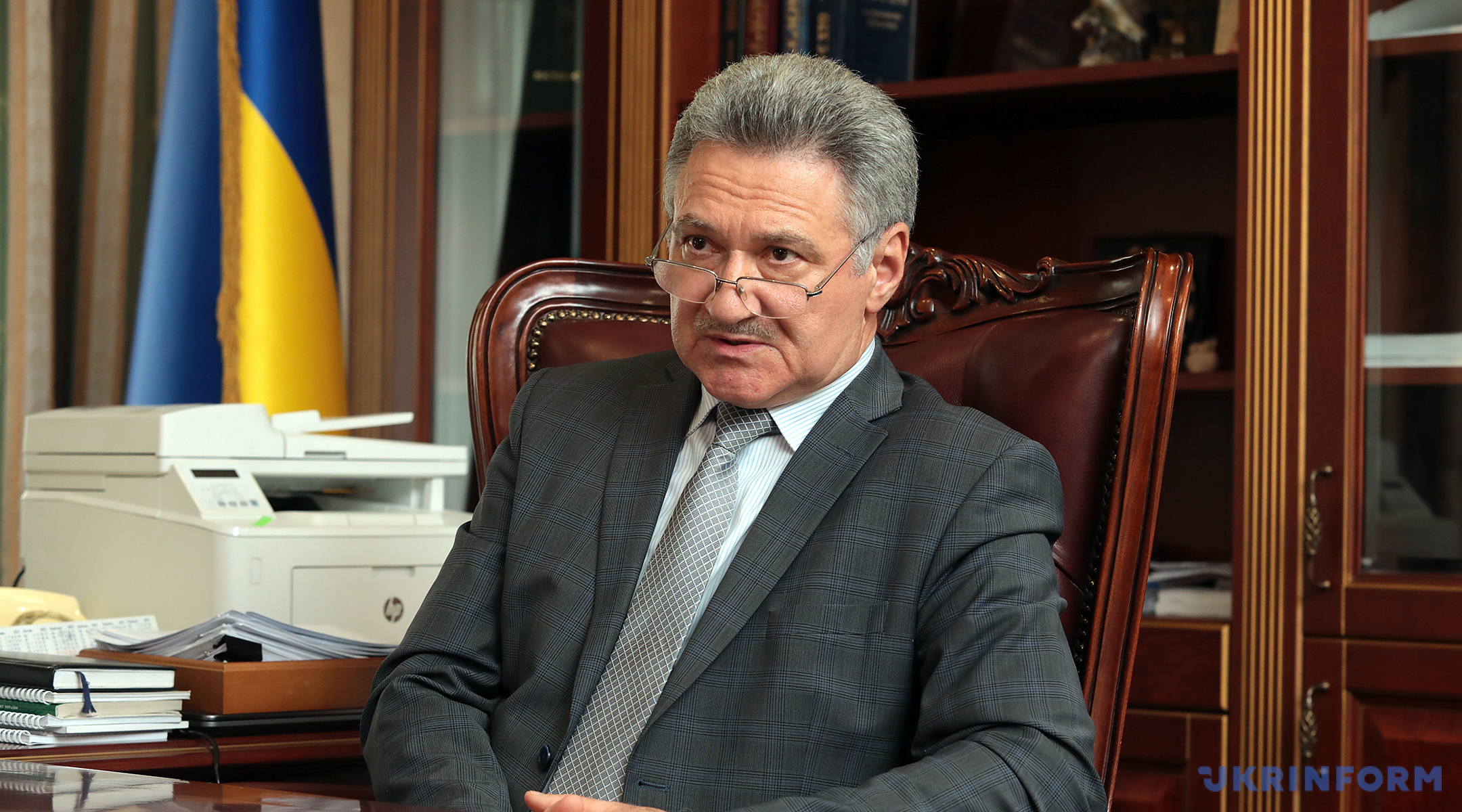
THE KNYAZEV CORRUPTION SCANDAL IS A SURPRISE FOR BOTH INTERNATIONAL PARTNERS AND OUR AUTHORITIES
- How do you assess the proposals of the National Security and Defense Council to increase the responsibility of judges?
- Several positions were voiced at the meeting. As for the strengthening of criminal liability, this is probably a predictable measure. Perhaps, in this situation, from the point of view of the legislative and executive branches, it is justified, but I always say that the mere strengthening of either criminal or administrative liability usually does not produce the expected results.
I think it is more important that each disciplinary violation or misconduct committed should be assessed and held accountable.
Perhaps increased liability, as proposed at the NSDC, will play a positive role, but the main thing is the inevitability of punishment for misconduct.
Of course, when we are talking about criminal offenses, as in the case of former Supreme Court Chief Justice Vsevolod Knyazev, this is unacceptable. In this situation, I approve of the proposed steps of the National Security and Defense Council to increase accountability.
- Denys Maslov, Chairman of the Verkhovna Rada Committee on Legal Policy, also publicly shared his vision of overcoming corruption risks in the justice system, stating that when a judge in any court is served with a reasonable notice of suspicion, a mechanism should be implemented whereby, in accordance with the decision of the HCJ, all judges of such a court will be subject to verification of disciplinary violations, failure to perform duties or the source of their property. In your opinion, how will this initiative work?
- It reminds me of something in the best traditions of the Soviet past. To be honest, if a judge commits such corruption offenses, is there a need to check all judges if there is no additional information about the involvement of any of the members of this court in a corruption offense? Apparently, this will be a kind of "horror story" for judges to prevent such things from happening. In my opinion, it looks like the introduction of collective responsibility of the entire court for the actions of a particular judge.
Will it work? I have not seen such responsibility for a long time. And in the practice of European countries, to which we often refer, there is no such thing.
First of all, there should be individual responsibility and individual punishment. If it turns out that someone from the team was involved in the case, then the person or persons should be investigated.
- On its European integration path, Ukraine had to implement seven recommendations of the European Commission. Some of them concerned judicial reform. In your opinion, has the expected restart of the judicial reform taken place? And can the Knyazev case prove that we have failed to fulfill these tasks?
- No, I don't think we have failed. I cannot make such a conclusion.
Recently, a delegation of members of the High Council of Justice, which I headed, visited the Council of Europe. We had meetings with the Council of Europe Directorate, with representatives of the Venice Commission, with representatives of the Consultative Council of European Judges (CCJE), and none of them expressed doubts about the correctness of the reforms, none of them said that Ukraine had not fulfilled its obligations.
Moreover, at a meeting of the General Assembly of the European Network of Councils of Justice held on June 8-9 in Ljubljana, the High Council of Justice was granted observer status. I would equate the granting of this status to the HCJ with Ukraine's accession to the EU. This is a recognition of the work of the High Council of Justice, but also a great responsibility to society and the judicial community.
At the meetings, I drew the attention of the Venice Commission and representatives of the CCJE to the fact that the High Council of Justice in the context of the Knyazev case not only expressed intolerance but also demonstrated it by its actions, giving consent to the detention of the former Supreme Court judge. The activities of our anti-corruption bodies were also positively noted. And it seemed to me that our European colleagues positively assessed the work of the High Council of Justice.
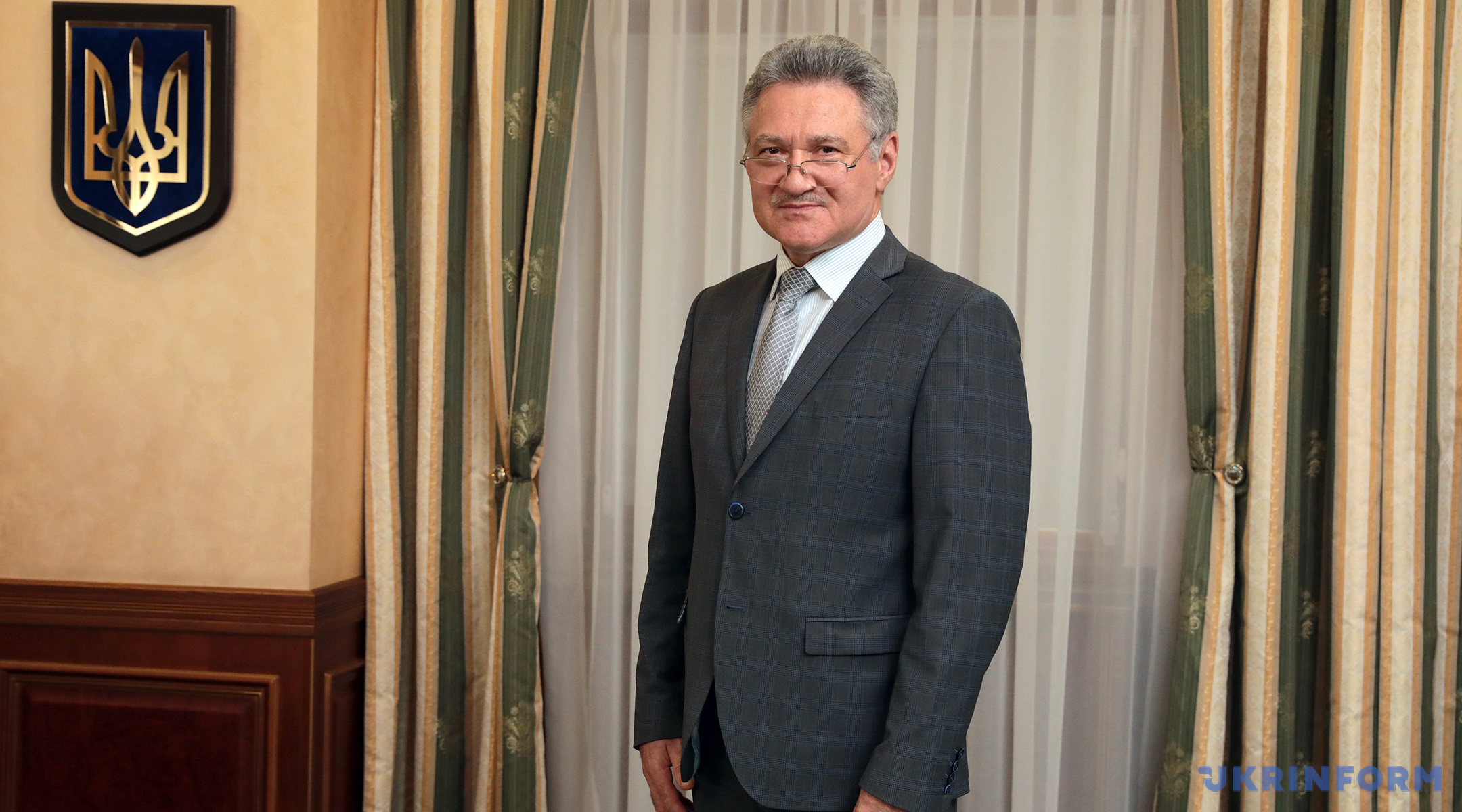
- So you believe that the Knyazev corruption scandal will not become an obstacle to European integration?
- No, it won't. At the meeting with our European colleagues, we discussed the administration of justice, the functioning of judicial governance bodies, in particular, the High Council of Justice and the High Qualification Commission of Judges. And it is the specific decisions of the High Council of Justice that inspire our European colleagues with the belief that Ukraine is fulfilling its obligations and tasks in reforming the judicial system. They are not yet complete.
Yes, this blow [the case of the ex-head of the Supreme Court Chief Justice Kniazev] has certainly affected the credibility and trust in the judiciary both domestically and among our international partners. This is unequivocal. In their eyes, Knyazev was a young reformer who said the right things, and here is such a failure.
This event was a very big surprise for us. Knyazev was a member of the HCJ, he worked with us, and we did not see any of his actions or statements that would indicate that such a situation was possible. I am sure it was a surprise for both our international partners and our authorities.
- The HCJ agreed to place Knyazev under arrest, but did the relevant authorities request his removal from the administration of justice?
- No, we have not. But it does not depend on us. Members of the HCJ cannot initiate this issue themselves.
- In your opinion, why don't they submit such a petition to the HCJ, since it deprives a judge of the right to receive a judicial remuneration?
- It's hard to answer, I can't say. I don't even have time to follow all this.
During the period of suspension from the administration of justice, a judge receives a net salary without additional payments until the court establishes his or her guilt. When we receive the relevant court verdict, such judges are subject to dismissal. And if they were in retirement, we terminate it by depriving the judge of his or her lifetime allowance.
As for the removal from office, this issue falls within the powers of the Supreme Court Plenum, which promptly met and resolved it. Although there has been criticism of the haste in electing the new Chief Justice of the Supreme Court, I believe that such actions are absolutely correct.
This shows that, regardless of their position and name, any person can be held accountable and their actions will be properly assessed. By their actions, both the Supreme Court and the High Council of Justice have demonstrated this and reassured the society a bit.
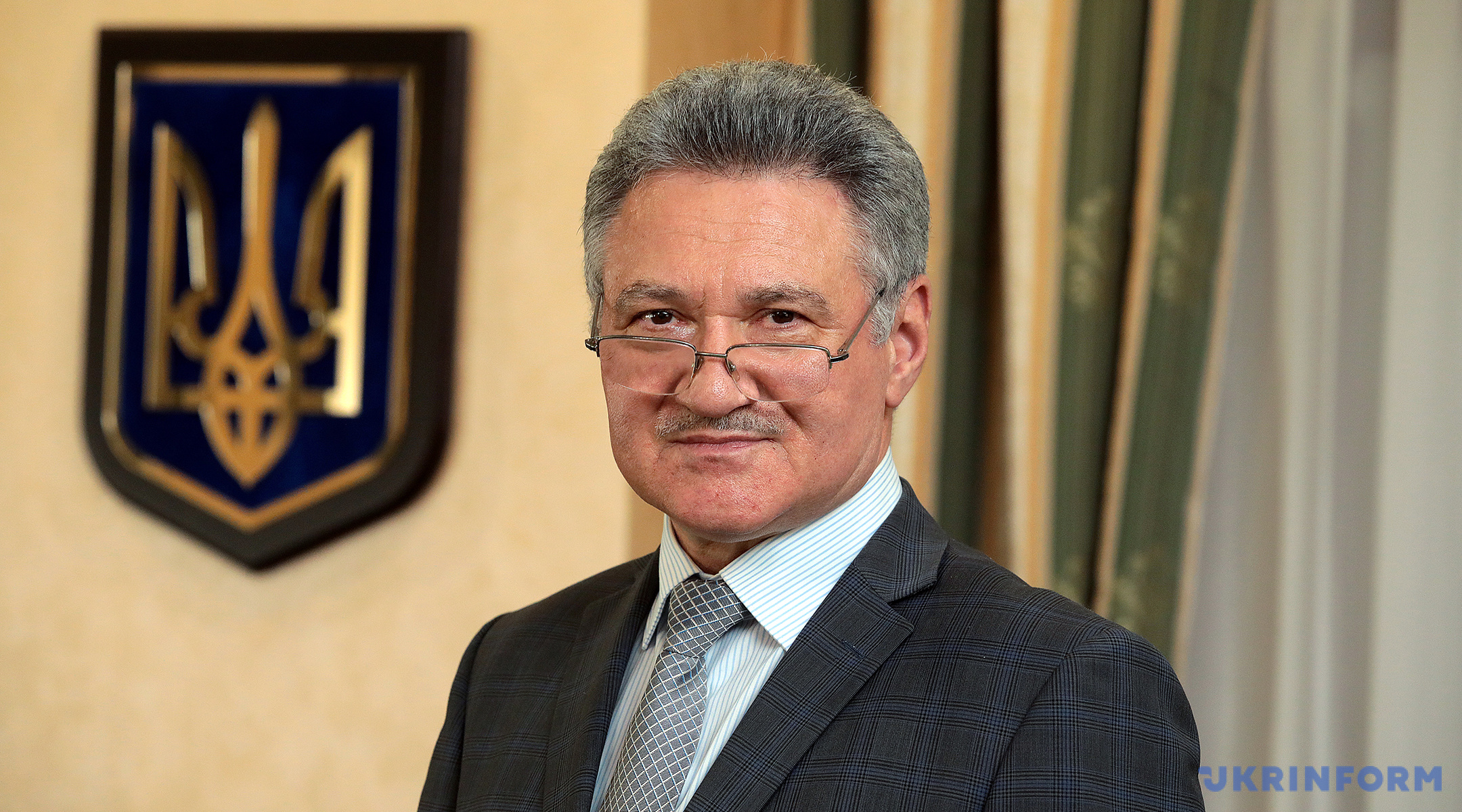
EVERYONE AGREES THAT A YEAR OF TRAINING IS TOO MUCH FOR A JUDGE
- At the end of May, the Verkhovna Rada passed in the first reading a draft law to unblock the HCJ's disciplinary function. In particular, it proposes to give the HCJ the authority to temporarily, until the Service of Disciplinary Inspectors is established, start considering disciplinary complaints and exercise its disciplinary function in full.
In its turn, the HCJ announced its intention to conduct an inventory of disciplinary complaints and develop criteria for prioritizing their consideration in the near future. What is the current stage of this work?
- In fact, the issue of the High Council of Justice's lack of a disciplinary function, i.e., the conduct of proceedings against judges on disciplinary complaints, has been ongoing since August 2021.
The HCJ's inability to exercise its disciplinary function contributes to situations where judges are involved in corruption cases
For almost two years, the High Council of Justice has not been exercising its disciplinary function. During this time, it has accumulated more than 9,000 complaints against judges.
In your opinion, if the body that performs this function lacks powers, can this contribute, even hypothetically, to the fact that judges can behave more freely without fear of being brought to justice? I think so.
The inability of the HCJ to exercise its disciplinary function probably also contributes to situations where judges are involved in corruption cases.
We declared our readiness to consider disciplinary cases at an online meeting with members of the Verkhovna Rada Committee on Legal Policy, which took place immediately after the HCJ was formed.
The draft law you mentioned stipulates that for the period until the Service of Disciplinary Inspectors is established, the powers of a disciplinary inspector are transferred to a member of the disciplinary chamber. This would make it possible to reduce the number of disciplinary complaints before the Service is established.
We have instructed the Secretariat to make an inventory of all "disciplinarians" even earlier to track and analyze the length of their stay in the HCJ, the severity of disciplinary offenses, public importance, etc. in order to prioritize their consideration.
- Have you started the work? What are the results?
- Yes, we have started. About 1,700 complaints are those that were received by the HCJ and had not been considered by August 21, 2021. The term for bringing a judge to disciplinary responsibility is three years.
- What are your forecasts for the adoption of the draft law in the second reading?
- There are none, because we do not have the text of the bill. It was supposed to be considered in an accelerated mode before the second reading. Denys Maslov, Chairman of the Verkhovna Rada Committee on Legal Policy, said: "Expect this law to be adopted by mid-June."
But now amendments to it are being discussed at the stage of preparation for the second reading. In particular, the USAID Program with the European Pravo-Justice Project and IDLO (International Development Law Organization) have proposed a different version of the procedure for selecting disciplinary inspectors. They propose to create an independent competition commission with the participation of three members of the HCJ and three members recommended by international foreign organizations that have been providing technical and legal assistance to the judicial reform in Ukraine for more than three years.
This commission will hold a competition during the period of martial law for the positions of disciplinary inspectors, the qualification requirements for which are also proposed to be changed. While the original version of the draft law required 15 years of work experience in the field of law, it is now proposed to reduce it to 5 years. I think this change will increase the number of people willing to take up these positions.
The current procedure for training judges is also quite cumbersome and costly
The proposals to the draft law adopted in the first reading were sent to us in writing, but their discussion, of course, still delays the resolution of the issue of "disciplinary".
Now it is even difficult for me to predict, given the radical changes to this bill, how the committee will consider it after the first reading.
After all, we are not talking about point amendments, but rather significant changes.
- Earlier you expressed the opinion that the procedure for appointing judges is too long and needs to be changed. How do you see these changes?
- The current procedure for training judges is also quite cumbersome and costly. If we test judges and say that after passing it and completing a practical assignment, a judge is ready to exercise his/her powers, is there a need to additionally conduct special training at the National School of Judges lasting 12 months?
In my opinion, more attention should be focused on practical training, perhaps including an internship in court proceedings.
Given the current shortage of judges, 12 months of training is quite a long time. In addition, we anticipate that the shortage will become even greater after the NSDC's decision and the submission of the relevant bills to the parliament. And although the HQCJ, which selects judges, has been appointed, it will take time for it to become fully operational.
To change the procedure for selecting judges, the law "On the Judicial System and Status of Judges" needs to be amended. This does not take much time, but it depends on how quickly the legislator acts, given the critical situation with personnel in the judicial system.
For example, for the sake of understanding, there are currently no judges with authority in three courts in Ukraine: Apostolivskyi District Court of Dnipropetrovsk oblast, Luhynskyi District Court of Zhytomyr oblast, and Ustynivskyi District Court of Kirovohrad oblast.
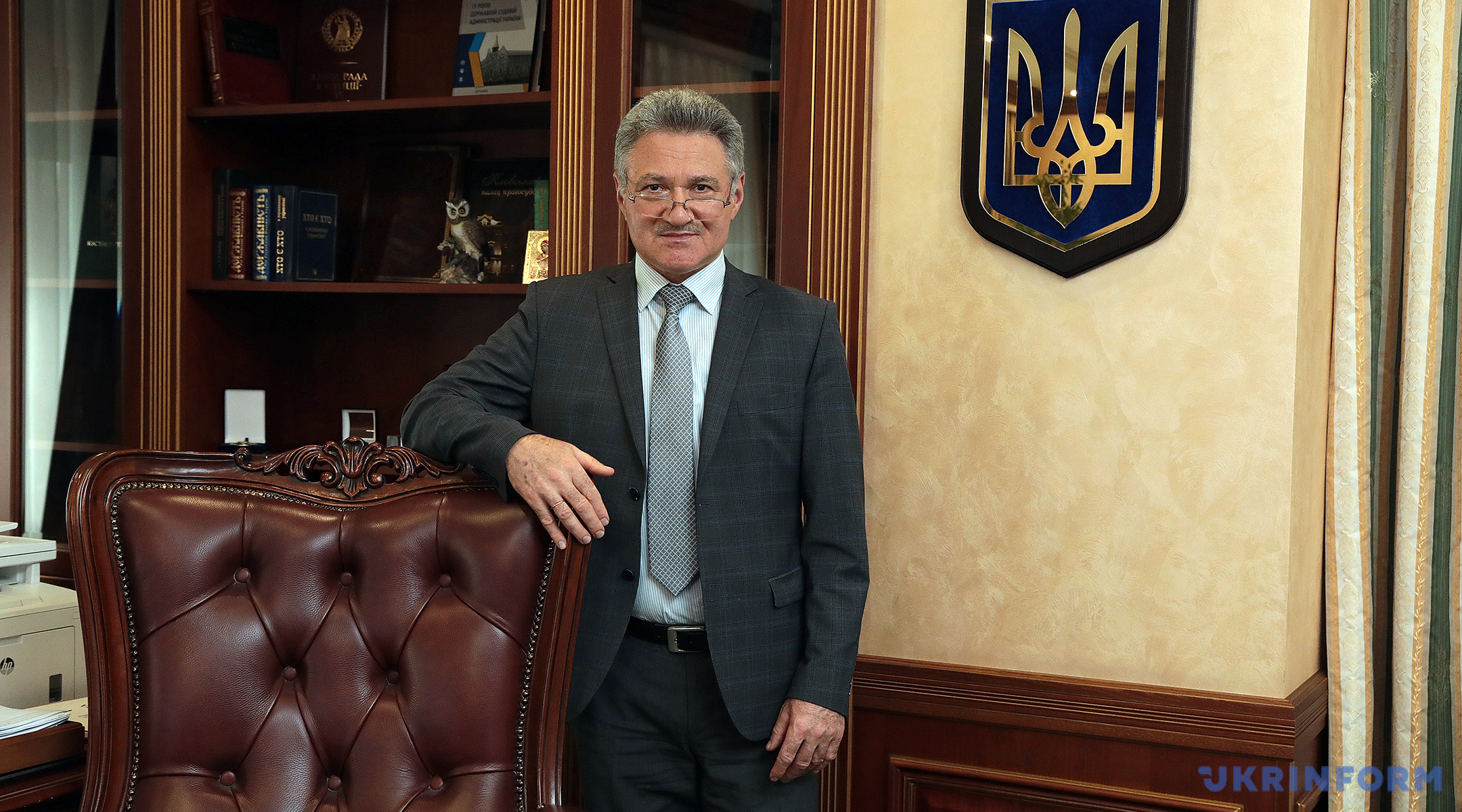
- Are there any discussions about changing the selection process in the judicial community, at the parliamentary level?
- Yes, these are not just intentions and talks in narrow circles. This is the position of our Western partners and the Parliamentary Committee on Legal Policy. Absolutely everyone agrees that a year of training is too much for a judge. Therefore, there will definitely be changes in the selection of judges. But how soon depends on our joint work with the Verkhovna Rada Committee on Legal Policy and the High Qualification Commission of Judges of Ukraine (HQCJ). As far as I understood from the HQCJ chairman's speech, the commission is now focused on completing the initial qualification assessment and the procedure for vetting five-year judges.
THE IMBALANCE BETWEEN DISMISSED AND APPOINTED JUDGES CAN BE BALANCED WITHIN A YEAR
- As of early June, the High Council of Justice dismissed 168 judges. At one time you said that the number of vacant judicial positions in Ukraine was increasing every day due to resignations or voluntary dismissals...
- There are already 189. Of these, 175 resigned, and the rest resigned of their own free will.
- What motivates judges to leave their posts, given the critical situation with personnel?
- The figure you mentioned was fixed before the NSDC meeting. So there are no concerns that judges are afraid of anything. Judges are tired.
- But you said the opposite earlier, that after the NSDC decision you predicted an increase in judges' resignations...
At each meeting we consider 4-5 resignations of judges.
- I think that judges will react to the NSDC decision, because will they want to undergo re-qualification and additional verification? Therefore, we predict that judges with sufficient experience will resign. But I would say that this is a complex issue. Many judges resigned before the NSDC decision. I know many more are going to do so because they are tired.
Understand that even if it weren't for the war, judges have a very heavy workload today - up to 3,000 cases per judge. Believe me, it is not easy. Moreover, if you work properly, it is very exhausting.
At each meeting, we are currently considering 4-5 resignations of judges.
- Given the trend of resignations, will the HQCJ be able to equalize the personnel imbalance and how long will it take?
- It will be able to, but over what period of time? In my subjective opinion, the imbalance between dismissed and appointed judges can be equalized within a year. Why this forecast? Because even if more than 360 "five-year" judges are appointed, whose written works are now being reviewed by the HQCJ, and according to my forecasts, about 350 more will resign during this time, this will not equalize anything. And the procedure for appointing judges and holding a new competition will take at least another six months.
FEARS THAT THE JUDGES OF THE LIQUIDATED KDAC WILL BE AUTOMATICALLY TRANSFERRED TO THE NEW COURT ARE UNFOUNDED
- What are the reasons for not including the resignation of Judge Yevhen Ablov, a judge of the Kyiv District Administrative Court (KDAC), in the agenda? What is wrong with his materials?
- It is on the agenda, but there is a need for additional verification. I don't know why everyone is so interested in Ablov's case. Either they want him to resign, or vice versa, they want him not to resign? So keep in mind that the law provides for the only grounds that give the right to suspend consideration of the issue of dismissing a judge is the existence of a disciplinary complaint, which provides for, among other things, the possible dismissal of a judge from office. This is the only reason to suspend consideration of a judge's resignation.
- Are there no complaints against Ablov?
- Yes, they are registered, but the proceedings have not actually been opened, because the HCJ has not been performing the function of disciplinary proceedings since 2021.
- What is the status of the judges of the liquidated Kyiv District Administrative Court?
- They remain judges, continue to receive a salary, but do not administer justice. By the way, another KDAC judge, Alyona Mazur, has submitted her resignation. She has a similar situation to Ablov.
- The KDAC was liquidated, and the Kyiv City District Administrative Court was to be established instead. It was registered, but it has not started working. What is slowing down the process?
- According to the State Judicial Administration, the Kyiv City District Court will operate in the premises used by the KDAC. The next issue is the determination by the High Council of Justice of the number of judges who will work in the newly created court.
We have previously discussed this issue at a meeting with the Head and a representative of the SJAU. At one of the next meetings, we will schedule this issue for consideration. Then the procedure for appointing judges will be carried out for this certain number. In any case, it is envisaged that this court should be operational by December this year.
- Do I understand correctly that the judges who will work in the newly created court will be selected?
- To be honest, I cannot answer you about the selection procedure, because it is not specified anywhere. It is possible that judges who have already been tested and qualified will be transferred to this court from other district courts.
- What will happen to the judges of the liquidated KDAC?
- They can also apply for transfer, but they will probably be subject to a corresponding check. I don't have a clear answer as to who will conduct it. This procedure should be spelled out in the law. Then there will be no questions.
In any case, I think that the KDAC judges will not get to the newly created court without an appropriate check, because none of them has passed the qualification assessment, and without it they cannot be transferred to another court. Therefore, fears that they will be automatically transferred to the new court are unfounded.
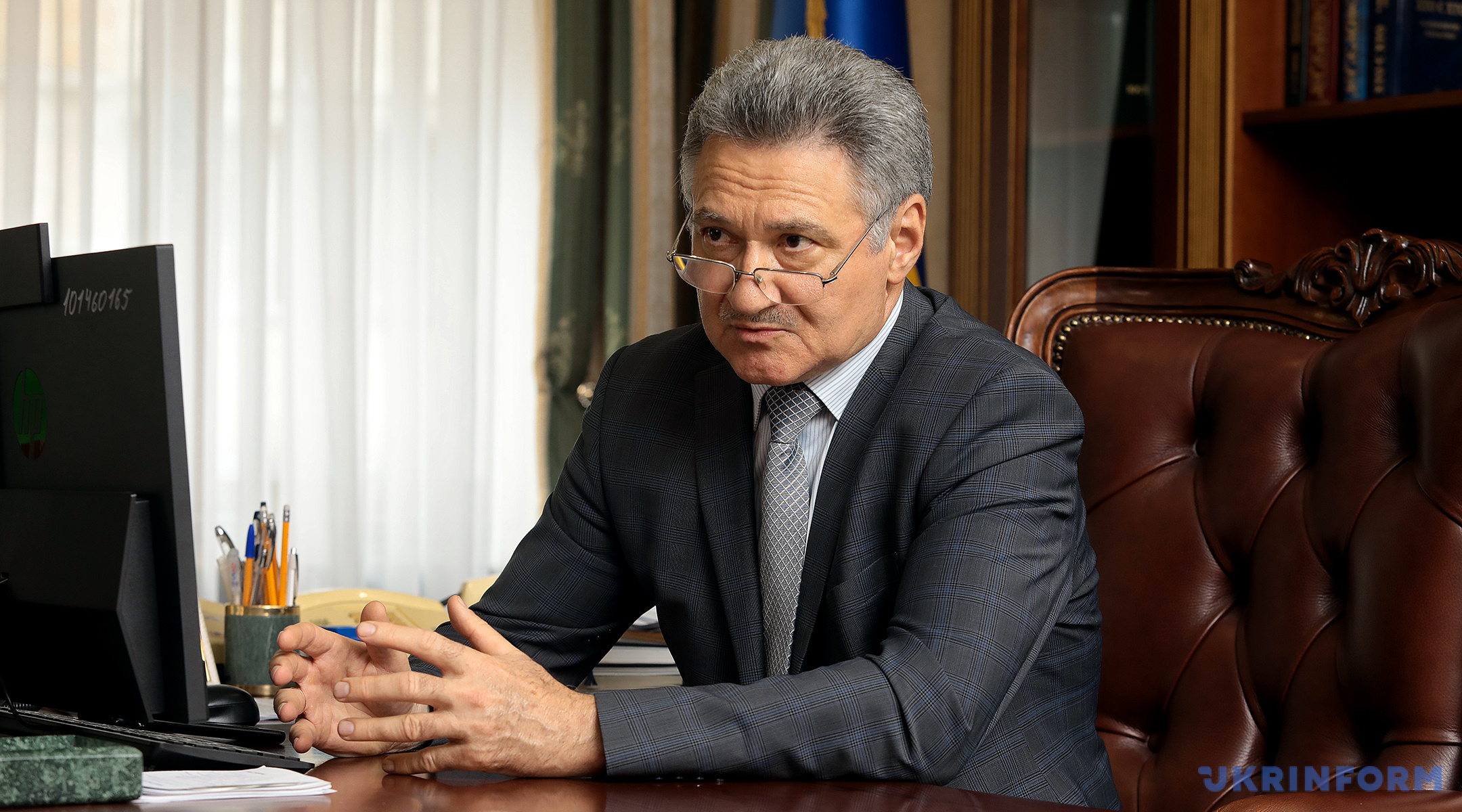
WE HAVE DIFFICULTIES OBTAINING INFORMATION ABOUT A JUDGE'S RUSSIAN CITIZENSHIP, BECAUSE THE AGGRESSOR STATE DOES NOT PROVIDE US WITH SUCH DATA
- In one of your interviews, you mentioned plans to establish cooperation with law enforcement agencies to check judges when they resign. What progress have you made in this regard?
- We have only established cooperation with the Security Service of Ukraine, which provides us with information on whether a judge has citizenship of another country when considering his or her resignation.
- Do you have any cases of confirmation of dual citizenship of judges?
- No, not according to the information provided to us by the Security Service of Ukraine. By the way, this issue also has its own difficulties, because we cannot say that the information provided to us is 100% reliable. It is difficult to obtain such data because at the diplomatic level, it is not required that a state that grants citizenship to a citizen of Ukraine notify the relevant authorities of our country.
And if we ask other diplomatic institutions and states to provide us with an answer to this question, they will probably provide it, but if we ask the aggressor state, we will not get an answer.
Do you remember the story with Judge Lviv? [On October 5, the head of the Commercial Court of Cassation, Bohdan Lviv, was dismissed from the Supreme Court on the basis of a letter from the Security Service of Ukraine that he had Russian citizenship.] There was information that he had a Russian passport, but it was not confirmed by official Russian sources. Therefore, we have difficulties obtaining information about the judge's Russian citizenship. This is an objective factor related to the fact that the aggressor state does not provide us with such data.
- Does the HCJ plan to apply a similar method of verification during judges' business trips to other courts? We recall the example of Judge Larysa Bohomolova from Berdiansk, who was transferred to the Poltava District Court and accused of collaborating with the FSB...
- Now the HCJ no longer decides on temporary assignments of judges. These powers were returned to it with the formation of the HQCJ. And at the time of the judge's secondment, we did not practice this mechanism.
Indeed, the example of Judge Bohomolova is very vivid. She was seconded to Poltava region from Berdiansk and was also elected chairman of the court! It was also surprising to us that she was elected as a court chairperson in a court where there were local judges.
- What information does the HCJ have about judges' cooperation with the enemy? Are you interested in this issue?
- Last year, at the initiative of the HCJ, a roundtable was held at which members of the HCJ expressed concern that we do not have such information, but need it. Unfortunately, we do not receive such data promptly.
In the process of preparing the report on the independence of the judiciary for the past year, we received information that investigators of the State Bureau of Investigation had opened 12 criminal proceedings on criminal offenses under Article 111 [Article 111 of the Criminal Code of Ukraine (high treason).] In total, there were 27 such criminal proceedings, 5 judges were notified of suspicion, and two were put on the wanted list.
Unfortunately, we do not have more information and specifics about each of the judges.
The HCJ made requests to the relevant authorities to provide information on the collaboration activities of judges, but we were not provided with such information. This is understandable, since a person cannot be found guilty of a crime until the verdict enters into force. In general, it is difficult to prove involvement in collaboration activities, as it is very difficult to obtain direct evidence and confirmation of such activities.
- How many courts are left in the temporarily occupied territories of Ukraine? Do you have any data on the number of judges who were unable to leave the TOT and are in captivity?
- According to the information available to us from the SJA of Ukraine, there are currently 54 courts on the territories temporarily not controlled by the Ukrainian authorities: 8 in Donetsk region, 16 in Zaporizhzhia region, 16 in Luhansk region and 14 in Kherson region. Unfortunately, we do not have information about the judges who remained on the TOT.
Yulia Gaidina
Photo: Hennadiy Minchenko
